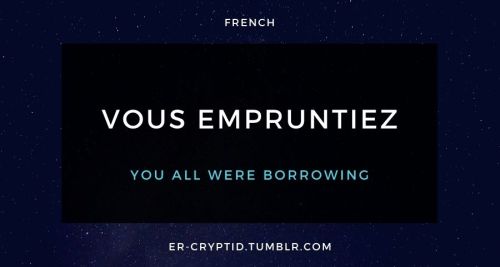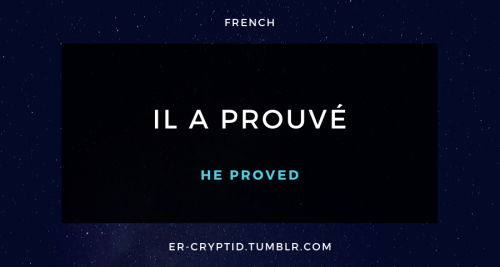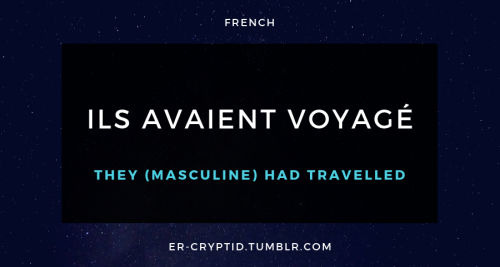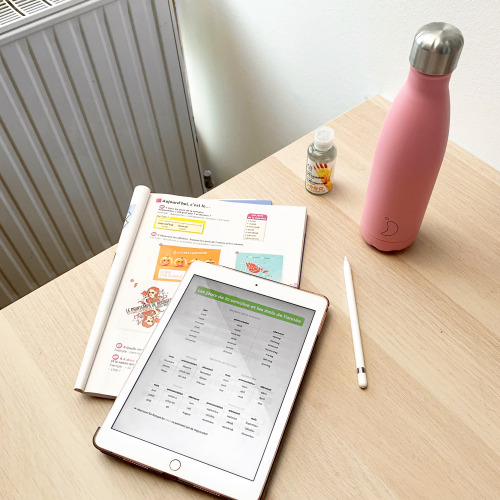#french language

Does anybody know the difference between these words? Is there a difference in meaning or is there like a grammatical form I’m blanking on?
Fat Lip Vocab
casualty- une victime, qqn ou quelque chose blessé ou perdu (typiquement en guerre ou catastrophe naturelle)
victim- une victime
society- la société
old people- personnes âgées
mullet- une nuque longue
brat- un gamin
abortion- un avortement
to be sick of- en avoir marre de
to waste time- perdre du temps
to crave- désirer, souhaiter ardemment
to fall in line- rentrer dans le rang
don’t count on me- ne pas compter sur moi
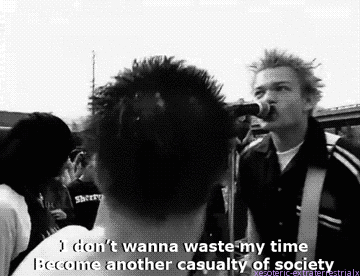
Me: I can understand spoken french
A québécois:
Me: so I lied
When I’m feeling good about my French speaking

vs
When I make an obvious mistake and freeze

When you hear the words South of France your first thought is probably dollar signs on dollar signs. From luxury yachts to wine vineyards, the French Riviera evokes a certain level of opulence with which your wallet is not familiar.

Trust me, I understand. I was discouraged from even trying at first but I had been dying to visit the beautiful Azure Coast and was NOT going to let my pitiful bank account stop me. Where there is a will, there is a financially feasible way. The three biggest expenses within any trip is transportation, housing, and leisure. Even if you have no plans to go to the South of France, this guide will help you budget on any trip.
Transportation
1. Getting There & Back
There’s an app called Rome2Riothat gives you the full play by play on the cost of going from point A to B by plane, trains, and other automobiles. It’s a great starting point. Once you’ve narrowed down your cheapest options, you can buy your tickets right from the site.

At this stage of my life, I value price over convenience. While an hour plane ride sounds lovely, 200 euros does not. I ended up finding a 15 euro Megabus to Marseille. Yes it was a grueling 11 hours…BUT luckily we chose an overnight bus. We left at 10pm and arrived to the beautiful sunny port city at 9am the next day. Not a bad way to wake up.
For the way back, I knew my patience for another 11 hour bus ride would be thin so I decided to spend a little more money on a faster route. I found another online app called KelBillet, where people can sell and buy unused train and bus tickets. It’s a very reliable app where vendors must be verified before posting their tickets to avoid scams. I found a girl desperately trying to sell her originally 70 euro train ticket for half the price. Winning!After traveling all week, a cheap 3 hour high speed train was perfect.
2. Local Transport
So you’re in your travel destination, HOW do you get around without paying crazy expensive taxi fares? No matter what city I travel to, I make use of two very important modes of transportation: the bus and my own damn two feet.
Let’s talk about buses. It’s become increasingly popular to use those Hop On, Hop Off tourist vehicles and while I see the appeal, they are just totally unnecessary. Why spend 40 euros to sight see when you can catch a local bus for 2 euros. It may seem scary but you will see more of the authentic, less touristy parts of town and you will become incredibly familiar with the city.
But the absolute BEST way to travel cheap is to walk. Crazy idea right? Most European cities are very pedestrian friendly. You can spend a day strolling leisurely from one historical monument to the next. You never know what you might stumble upon. A gorgeous field of lavenders, a quaint restaurant that sells regional cuisine, or a hip bar for when happy hour strikes. Walking around a city is the best way to feel within the city. So if you’re physically able and the weather permits, I highly recommend making it your main mode of transportation.
Side tip: I didn’t do this, but bike renting is another very popular option.
3. Short Distance Travel
While our main destination was Marseille, there where other small sea towns we wanted to visit only within an hour distance. We went to Cassis to visit the amazing Calanques (seen below). From Marseille it was very easy. Our hostel told us about a 30-minute shuttle that would take us there for a whopping ONE EURO! If you are ever in the Southeast of France I highly suggest you take the time to see this beautiful treasure.

We visited the ancient city of Arles by using BlaBlacar.This ridesharing app is basically AirBnB for cars. You find someone that is going the same direction as you and you pitch in for gas. Depending on how far you are going, you can pay as little as 5 euros. It’s not only a great, cheap option, but it gives you a chance to converse with locals!
Housing
For the most part, I love using AirBnB. It’s becoming increasingly popular over the past few years and understandably so. Hostels are crowded and hotels lack personality. I always check this website first but if the prices aren’t to my liking then to Hostelworld.com I go. Honestly, I don’t love hostels. Sharing a room with 8 other 20-something strangers makes me feel like I’m at some drunk summer camp for adults. But its crazy affordable. And who knows, you might even meet some buddies to explore the city with. In general, all you need is a place to lay your head comfortably at night. My only requirements are that it has free breakfast and WiFi (:
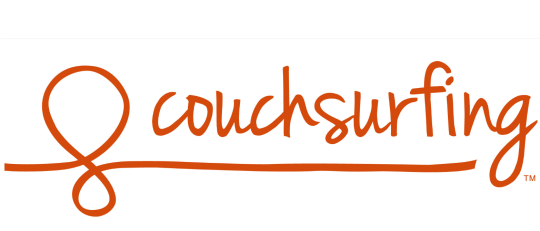
For the first few days, we stayed in a hostel but as funds were getting low we decided to take a less conventional route: Couchsurfing. If you’re not familiar, couch-surfing is when you stay at another person’s house for free. Yes, you heard me: FREE! How is this possible? What’s the catch?? Well, there isn’t any. There are some people in this world that feed off of being hospitable to strangers for the sake of cultural exchange. And ask for nothing in return but respect, trust, and a positive attitude. (Although, its nice to bring them a little something-something as a token of gratitude).
I’ll be honest, I was VERY skeptical of this option. But here is the personal criteria I follow to ensure a safe experience.
- I prefer to stay with other women my age.
- I only look at verified hosts with fully filled out profiles with at least 20 positive reviews.
- Be skeptical of hosts that are NOT selective of their guests. You don’t want someone that just lets anyone in their home.
Using my personal criteria, I had a very positive couchsurfing experience. Our host was absolutely awesome, overwhelmingly generous, and gave us great advice on how best to spend our time in the city. Of course you can create your own criteria, but only do what is comfortable for you.
Leisure Activities
This could arguably become the most expensive part of your trip but it’s also the one you have the most financial control. For vacation, I always take out cash and refrain from using my debit or credit cards. This allows me to stay in my budget as well as physically keep track of my spending.
1. Food and Drinks
If you follow my advice from housing, breakfast is already taken care of. But for lunch and dinner you have to be careful not to spend 20 euros per meal. Many restaurants in France do lunchtime deals where you can get a lot for a low price. My friend and I took serious advantage of this. Therefore dinner always became grab something small and inexpensive.
For drinks, you can utilize happy hour to the best of your ability but honestly you don’t always need to buy from the bar! It may feel classier to drink un verre du vin at a restaurant overlooking the sea but try just buying a bottle from a supermarket and drink it on the beach with your toes in the sand, watching the sunset over clear blue waves. It’s more memorable that way.
2. Activities
They say the best things in life are free. Depending on the city, this may be easier said than done. But before you travel always look up a list of inexpensive or practically free activities. For larger cities you can use Timeout. But for smaller cities its best to just ask the locals for advice. Locals know best after all.
_______________________________________________________________________
So there you have it. In conclusion, traveling on a budget is more feasible than you realize. All it takes is serious financial control and proper planning. Because of our extreme budgeting, we were able to see this…

and this,

and this,

and this.

Happy Traveling!
Conjugation, subject-verb agreement, verb tenses…is there anything more clinical than learning a language at school? While these are all necessary elements of language learning, real fluency is born from listening to native speakers in their natural element.
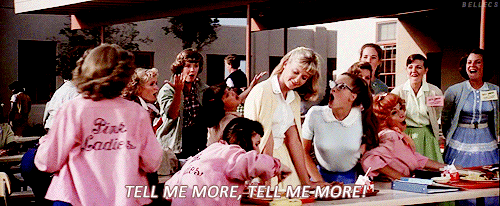
I’m talking about the type of mannerisms and peculiarities even native speakers don’t know about themselves! Sure you can write a 10-page essay in impeccable french, but can you gab with the girls at the hair salon? Here are the five language nuances your teacher won’t teach you.

1. Inflections
Languages don’t sound the same. That’s an obvious statement. But even the inflections and vocal tones don’t necessarily translate. For example, in english, depending on the context, we don’t necessarily need to go up at the end of a question. But in french, its essential. I’ve even been told before that even though my american accent is often undetectable, I speak in an american rhythm. I’m not sure what that means but it just emphasizes how these subtle idiosyncracies can make the difference.
2. Interjections
I always thought interjections were intuitive. Actually, I never thought about them much at all until I moved to France. But I quickly realized that interjections are a learned part of language. If you stub your toe, you’re not going to say “ouch”. You should say “Ouïe”. If you eat something gross, you’ll get quite a few looks if you say “yuck” instead of “Beurk”. Even animals aren’t safe. Ducks don’t quack and pigs don’t oink. One of my classes (embarrassingly) had me imitate the entire animal kingdom because they found the differences so peculiar. At any rate, it’s definitely worth looking these interjections up because they’re a huge part of language.
3. Facial Expressions
The french are quite facially expressive people. It’s quite entertaining as an outsider and all expats notice this right away. My favorite expression is the dumbfounded look my students give me when they have no idea what I’ve said. They widen their eyes and puff their cheeks like a blowfish…it’s hilarious. You can see that look HEREat 0:49. But what struck me most is how uniform that look is, which indicates that is cultural more than it is individual.
4. Hand gestures
The french start counting with their thumb instead of their index finger, the “Ok” sign actually means “zero”, and rubbing your nose means you’re drunk. Hand gestures are definitely cultural. It’s recommended before going to any country to look these up because you may think you’re giving the thumbs up but instead you’ve just started a fight in public. Typically, you won’t find these cultural differences in a textbook.
5. Idioms
One day I asked a friend what she thought of this guy she was seeing.
Her response: “Il est sympa, mais il se regarde le nombril (He’s nice but he looks at his bellybutton).
My first thought: “….That’s weird”
What I didn’t know (and didn’t find out until a week later) was that se regarder le nombril is an idiomatic expression that describes someone as egotistical or narcissistic.
Idioms are a little harder to prepare yourself for because the possibilities are endless and often the expression holds very little indication of what it actually means. However, whenever you hear one try hard to remember it and challenge yourself to use it in another situation.
It’s no secret that french is hard to pronounce. From the throaty R to the nasally vowels, you can’t tell if you’re really speaking french or just a bad caricature of Pepe le Pew. I’ve taken french for 9 years and I still make pronunciation mistakes daily. Here’s a list of some words I’ve said incorrectly recently.
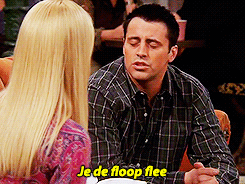
Canard(duck)can easily becomeconnard(a**hole)
Cannes (city in France) can easily becomecon(idiot)
Chat(cat)can easily become chatte(p***y)
Décidé(decided)can easily become décédé (deceased)
Gare (train station) can easily become guerre (war)
L’amour (love) can easily become la mort (death)
Pêcher (fish) can easily become pécher (to sin)

What happened when I mispronounced these words? Usually…nothing. Either the other person would politely correct me or I would realize later that their sheepish grin meant I probably said something slightly inappropriate. Its okay to make mistakes though! We’re human. And more than likely you will get a funny story out of it (:
In French, we don’t say “thong” to refer to the clothing item, we say “(le) string [(\lə\) \stʁiŋ\]”. But in European French, we also have the word “(la) tong [(\la\) \tɔ̃ɡ\]” that translates to the beach slippers/sandals commonly known as “Flip-flops” and I always found it confusing.
Submitted by @sweet-kokoro-15
[resources:Wiktionnaire about “string” (in French)andWiktionnaire about “tong” (in French)]
In Czech we don’t say “You’re annoying” or “You’re irritating me”, we say “sereš mě (seresh me)”, which literally means “You’re shitting (on) me” and this is just perfect way to describe the feeling.
Submitted by anonymous, with the help of @anxiousahsoka
In French we say “tu me fais chier” which means “you’re making me shit”

